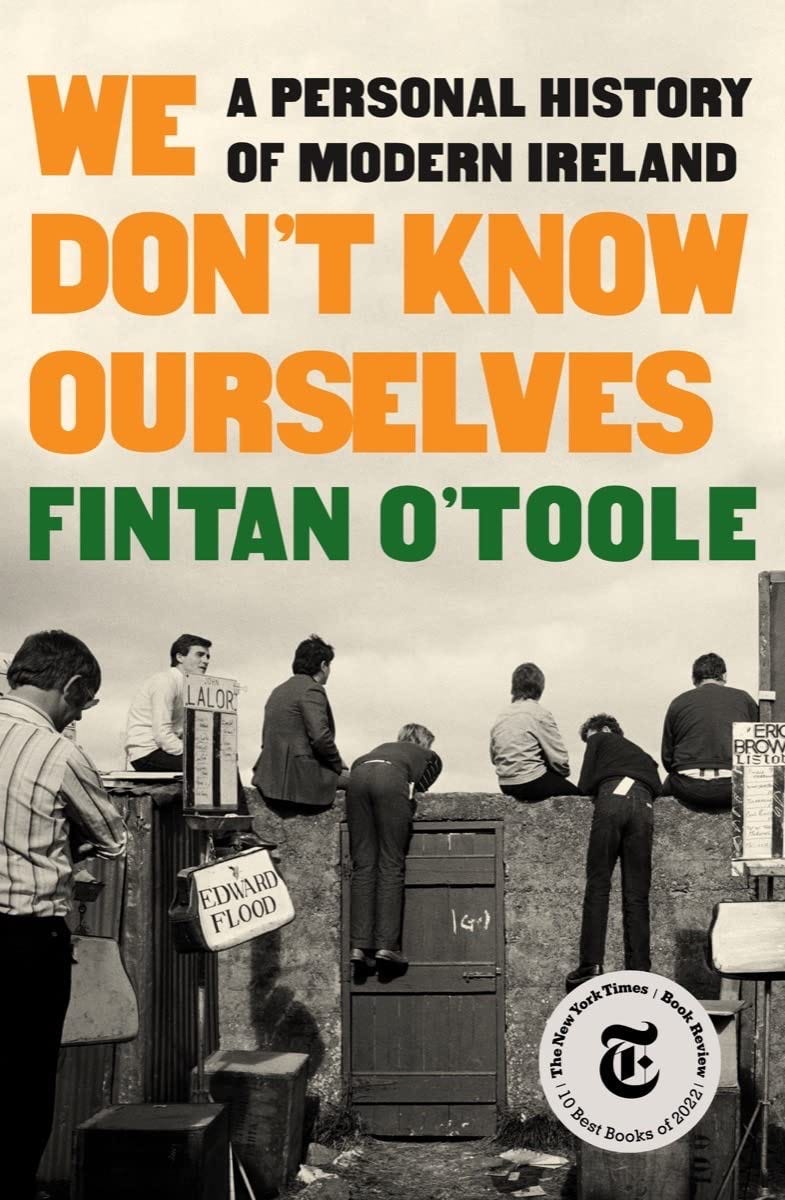Not sure how I came across this book.
Literally have no memory.
Just know that I came across it, grabbed the Kindle edition because it was cheap and quick to get hold of, and have never looked back.
Fintan O’Toole is a columnist for the Irish Times. This is quirky approach to recent history. He tells it not as an all-knowing observer after the fact, but from the perspective of the young boy growing up in the 1960s and 1970s.
Not a memoir. Not a history. But something else.
People from Newfoundland and Labrador will find much of it familiar. Get the book. read it. You will not look at your own country turned province the same.
The habits of mind that created so many problems for politics and public discourse – the slipperiness, the ambivalences, the not-knowing – are also conducive to creativity in art. Irish artists could have everything (at least) both ways. They could be at once realists and fabulists, social critics and mythmakers… They could at once rail against Catholicism and raid its vast storehouse of imagery, knowing that their audience could still be touched by the power of its iconography.
This familiarity is not because we are so Irish here, more Irish than the Irish if you believe some bullshite. The strong Irish presence here from the late 18th century onwards - a third of the population is of Irish descent - and the exaggeration and myth-making of more recent times will lead many to a mistaken conclusion.
The familiarity is because, like Ireland, this was a place dominated by the British well into the 20th century and the struggles between English and Irish, Protestant and Catholic, imported from overseas found outlets here. They became embedded in the local culture, with local twists and adaptations like the pervasiveness of sectarianism. We only eliminated the last open vestiges of sectarianism in the 1990s by popular vote.
Not as openly violent here as Ireland or Northern Ireland but in many respects more insidious and more vicious because everything in the society was suppressed, denied, fabricated. O’Toole talks about things that happened, that people knew were happening, but that were officially unacknowledged. Well, that’s familiar and continues to be the norm locally.
But unlike Quebec to look to the west or Ireland, Newfoundland and Labrador is a place where the Church’s power within the Old Order, let alone the Old Order itself, was never decisively and openly and deliberately broken. Others just slithered into the social and political roles vacated by others and carried on. Talking of Newfoundland and Labrador as post-colonial is naive at best and, at worst, a cynically sick joke.
There’s more to read below the Subscribe button but, if you want to start the weekend with something that might cause your brain to do a few flips as you squirm in your chair, you can find O’Toole’s book at Chapters (couple of copies there last weekend) or online.
And yes, this will probably spawn a couple of columns. Like one on the lingering death of sectarianism in Newfoundland and Labrador, the influence it had on politics until relatively recently, and the impact it still has.
Keep reading with a 7-day free trial
Subscribe to Bond Papers to keep reading this post and get 7 days of free access to the full post archives.


